Advertisement
A Plan To Resettle Syrian Refugees Divides This Small Vermont City
Resume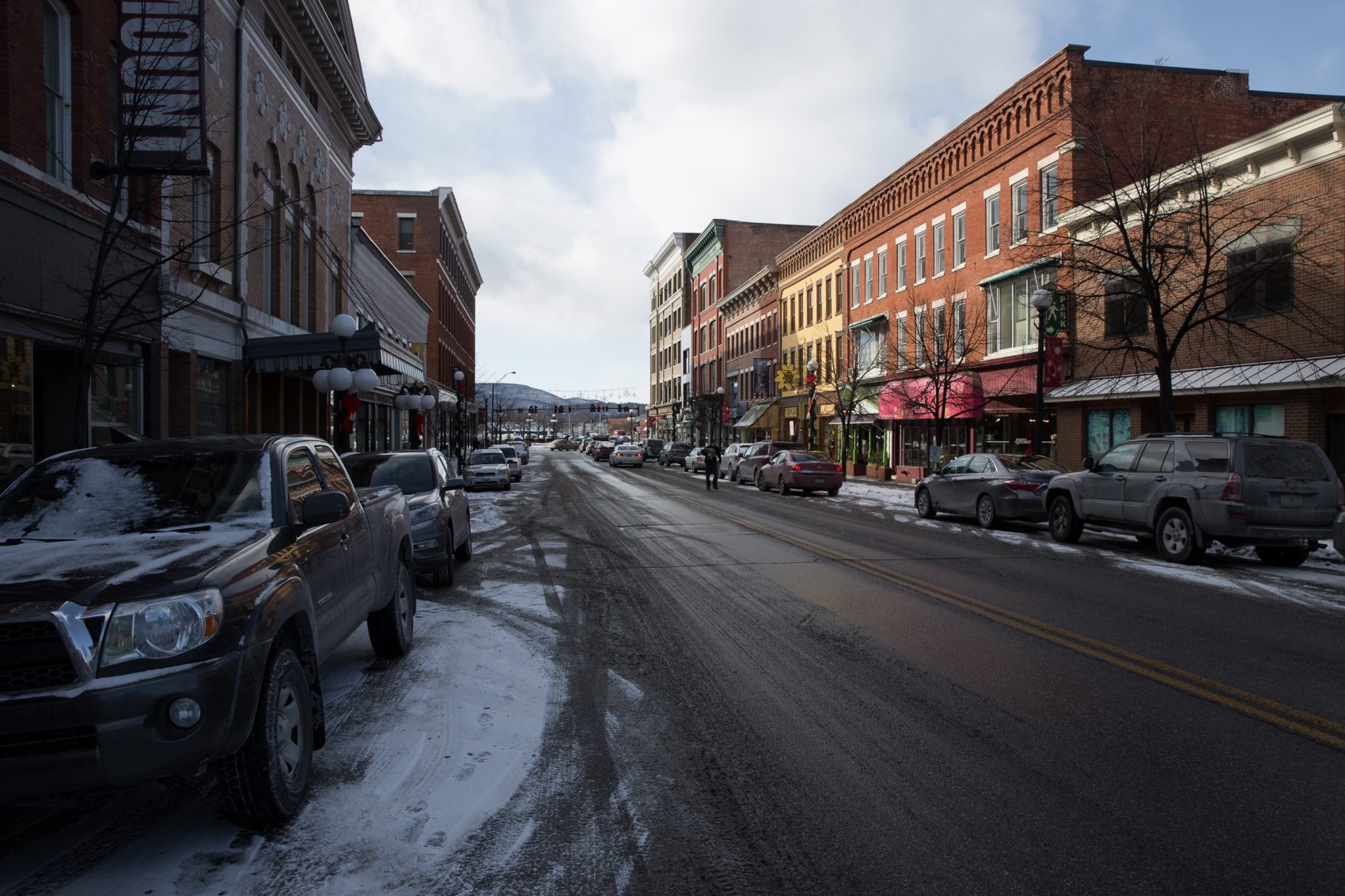
Part 3 of a four-part New England News Collaborative series called "Facing Change"
RUTLAND, Vt. — For two hours on a recent Thursday night, one of this city's Unitarian churches was filled with an unusual sound: Arabic.
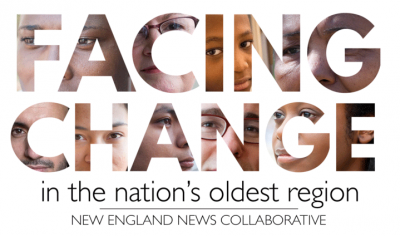
It’s not a language you hear much in Rutland. There are few Muslims in the city, no Middle Eastern restaurants and no mosque tucked between the many churches.
But in January, Syrian refugees — about 100 the first year, with more to follow — will begin arriving in Rutland, an aging, blue-collar city of 16,000 people.
Residents are deeply divided over the plan, with some in the community hoping a Trump administration will slow down or even stop resettlement. They worry the refugees won’t assimilate and will increase local taxes.
But proponents remain optimistic and many people, like Morgan Denehy, have stepped up to ensure the plan succeeds.
Language Lessons
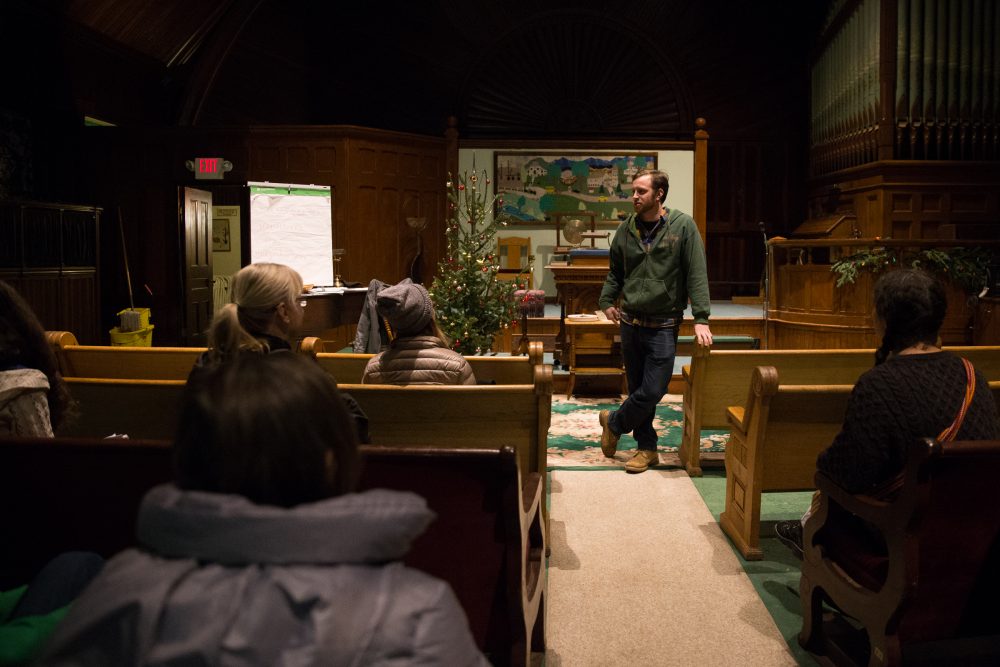
Denehy, who grew up near Rutland, studied Arabic in college and spent time living in Egypt and Morocco. When he heard about the refugee resettlement plan, he decided to move back home.
“I was really blown away by the amount of interest that people had for wanting to help," he said. "And I just sort of felt that I had to do my part. That was always my experience learning Arabic or any language, that you address someone in their own language and it’s really powerful.”
Since early November, between 15 and 30 people have been attending his free Arabic classes. Two Arabic language professors from Middlebury College drive down each Thursday to help.
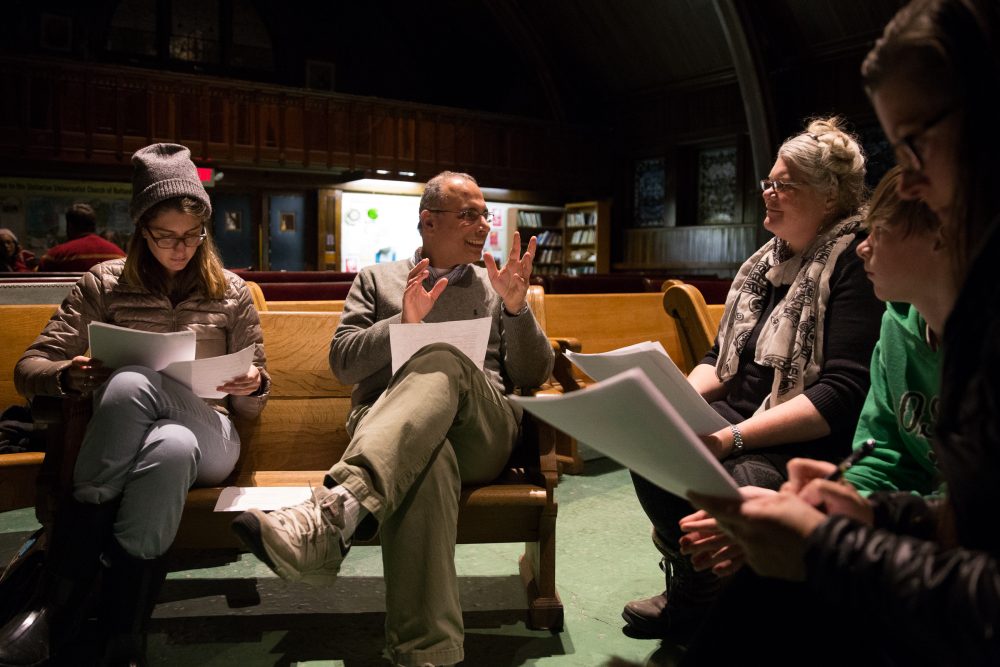
Why Rutland?
You might be wondering: If Rutland is so small and has so little Middle Eastern culture, why bring Syrian and Iraqi refugees here in the first place?
Compared to Burlington — where resettlement has been going on for decades — housing costs are low in Rutland and employers have jobs to fill.
And many, including Rutland Mayor Christopher Louras, believe refugees will give the city a much-needed boost.
“My response to people who say Rutland’s not ready for this type of thing is: Then when? And how has this been working out for us? Not too well," Louras said. "Our population has continued to decline, and we need an infusion of new blood and new culture.”
Barbara Richter agrees. She is part of Rutland Welcomes, a volunteer group that formed in April and now has a small army ready to tutor, mentor and provide transportation.
Inside a local church, Richter unlocked a storage room that’s filled with items donated for the refugees, including saucepans and dish sets. Many items were still in boxes.
“With one phone call I could mobilize a network of people to come in here and take what they need to set up a home,” Richter said.
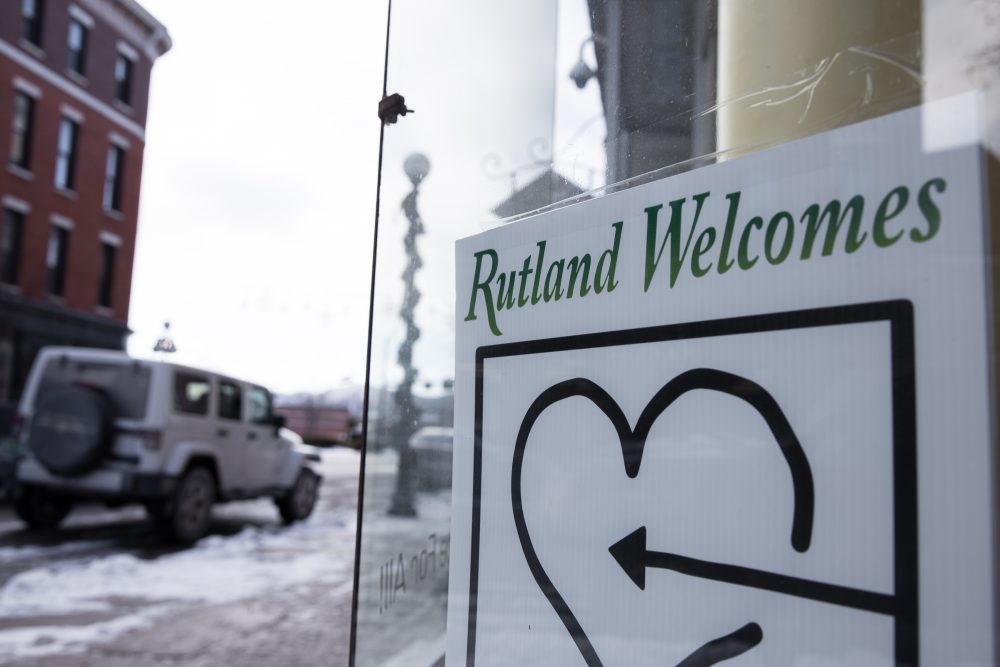
Divisions Over Resettlement
Across town, Castleton University’s Emily Gleason greeted 20 teachers and school counselors.
Gleason specializes in literacy and cultural studies. When she heard about Rutland’s resettlement plans, she designed a semester-long course to help educators better understand the refugee crisis and the needs of refugee children.
“We try to think about the kind of cultural barriers they might face walking into a small, rural school in New England and how we can be as inclusive and as welcoming as possible,” Gleason said.
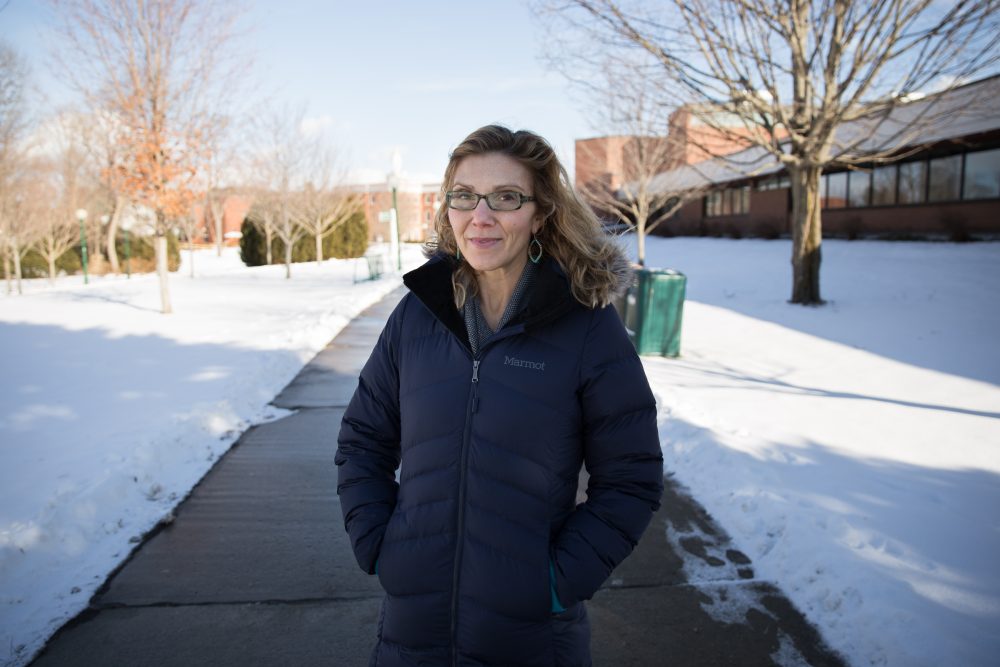
Unlike many U.S. cities, Rutland doesn’t have a refugee community already in place, so creating one has stirred up a lot of uncertainty.
Jackie Gauthier, who is in Gleason's class and works in a local primary school, remarked at how difficult it had become to talk about.
“I had one person say the other day, 'I don’t know why I feel this way because my family were immigrants, but I’m just not comfortable with them coming to our community.' So she was struggling with her own feelings; she didn’t really understand why she felt that way,” Gauthier explained.
Many in Rutland, like Matt Howland, expressed big concerns about how the city will absorb so many newcomers.
While Howland applauded the efforts of local volunteers, he worries too much of the resettlement effort depends on them.
“Five years from now, what resources does the city have in place to pick up if a group like Rutland Welcomes no longer has the means to help support this program going forward?” he asked.
Roman Smiechowski isn’t worried. While not a refugee, he immigrated to Rutland from Poland 24 years ago, learned the language, and sent a daughter to law school.
“I look in [the] mirror every day," he said. "I came here, and I made it.”
Smiechowski teaches drivers education and is developing a course to help refugees learn to drive.
He said once they begin living in the community, he hopes people in Rutland will see them for what they are: "other families just trying to make it."
This segment aired on December 21, 2016.